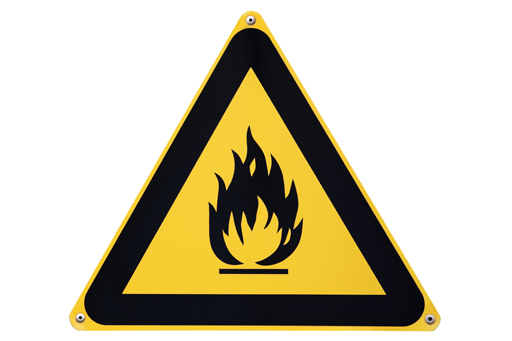Fire risk
In Clinical
Follow this topic
Bookmark
Record learning outcomes
Scenario
Counter assistant Farida comes into the dispensary to talk to pharmacy technician Vicky.
“Aargh, I don’t know what to say to that lady who is at the counter!” Farida hisses.
“What’s wrong?” asks Vicky, looking up from the computer.
“She wants a headlice treatment for her daughter, but is saying that she doesn’t want Hedrin, NYDA or pretty much everything we’ve got because she saw this thing on daytime TV about them going up in flames,” says Farida, rolling her eyes.
“I don’t think she’s talking about spontaneous combustion, Farida!” replies Vicky. “And while it isn’t quite as dramatic as she’s making out, there is something in what she’s saying.”

Answer
The UK drug regulator, the Medicines and Healthcare products Regulatory Agency (MHRA), recently issued a warning to pharmacists about the risk of headlice products catching fire. Anyone who is applying such treatments, or who has them on their hair, should be told to stay away from open flames or any other sources of ignition (for example, lit cigarettes, gas cookers and candles) until hands and/ or hair have been thoroughly washed so that no trace of the product remains. These warnings are detailed in patient information leaflets.
The reason for this advice being issued is the number of cases involving serious burns that have been reported to the MHRA. Since Hedrin was licensed in 2005, the regulator has been informed of eight separate cases, five associated with cigarettes, two with gas fires and one with a candle. There have been a further two cases associated with other headlice products, one in which a woman sustained serious burns when smoking, and a second – only last year – involving a child.
The bigger picture
Headlice treatments are not the only products on pharmacies’ shelves that are flammable. Another category that poses a very real danger is paraffin-based emollients, such as emulsifying ointment. These products are particularly risky when applied to large areas of the body – as is often the way for a child with eczema – or if dressings or clothing are placed on top. Proximity to naked flames or smoking can cause garments to catch fire, and a fatal incident of this type has been reported to NHS England’s National Reporting and Learning System.
Pharmacy staff should also advise anyone who is involved in the management of conditions that are being treated with paraffin based products that clothing and bedding should be regularly changed – preferably daily – as the fabric can become soaked in emollient and therefore create a fire hazard.
Extend your learning
- Read the MHRA warning about headlice treatments
- Read the MHRA warning on paraffin-based products
- Which emollients stocked in your pharmacy contain paraffin? Use the British National Formulary to check
- What could you do to make sure patients and customers are getting this important advice? For example, are all staff aware of the risk? Are there prompts near where the products are housed on the shelves? Take any reparative actions necessary.
